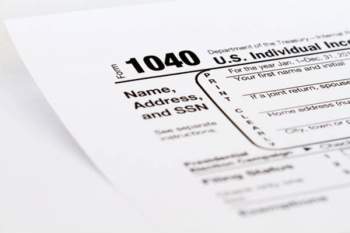
Does Self Employment Still Get Taxed?

What is Self Employment?
The term self-employment refers to any individual who earns an income through a product or service that is delivered solely by the individual himself. All self-employed individuals, thus, are not employed by companies or other forms of businesses. Furthermore, a self-employed individual will also incorporate any person who works form himself/herself, as oppose to an employer, but draws an income from a business that they own or operate personally.
Those who are self-employed; however, are not necessarily business owners. A business owner is not required to be hands-on with the day-to-day operations of the underlying company, whereas a self-employed individual must utilize an extremely hands-on approach in order to draw an income and ultimately survive. Based on statistics evaluated and established by the United States Bureau of Labor Statistics, roughly 45% of self-employed businesses survive the first 4 years in business.
Definition of Self-Employment in the United States:
In the United States of America, a person is considered to be self-employed (meaning they are subject to the self employment tax) if that individual is running a business as an independent contractor, a sole proprietorship, as a member of a limited liability company (that does not elect to be treated as a corporation) or as a member of a partnership.
In addition to the generic income taxes paid by all workers who secure an income in the United States, individuals who are self-employed must also contribute Medicare and Social Security taxes to satisfy their self employment tax obligations. The Self-employment tax is established as a part of SECA (the Self-Employment Contributions Act).
What is the Self Employment Tax?
Similar to all employed individuals in the United States, the Internal Revenue Service (the predominant taxing agency in the country) levies an income tax—as well as other taxes—on self-employed individuals.
The self employment tax in the United States is currently set at 15.30%, which is equivalent to the combined contributions of the employee and the underlying employer under the FICA tax. The 15.30% rate attached to the self employment tax consists of two primary parts: 12.4% of the self employment tax is levied for social security and 2.9% of the total 15.30% self-employment tax is levied for Medicare.
The social security portion of the self employment tax is only applied to the first $106,800 of income earned in the 2009 taxable year—this percentage fluctuates based on tax policy and the tax rates for the particular tax year. There is no current limit placed to the amount that is levied under the 2.9% Medicare portion of the self employment tax.
Those individuals who are self-employed are typically eligible for more deductions that typical workers. For instance, travel, computer equipment, cell phones, uniforms, etc. can be deducted as legitimate business expenses under the self employment tax legislation.
All self employment taxes are reported by the individual workers as business income or losses on Schedule C of IRS Form 1040; the self employment tax is the calculated on Schedule SE of IRS Form 1040. The self employment tax must be paid quarterly using form 1040-ES if the estimated tax liability exceeds $1,000.



















